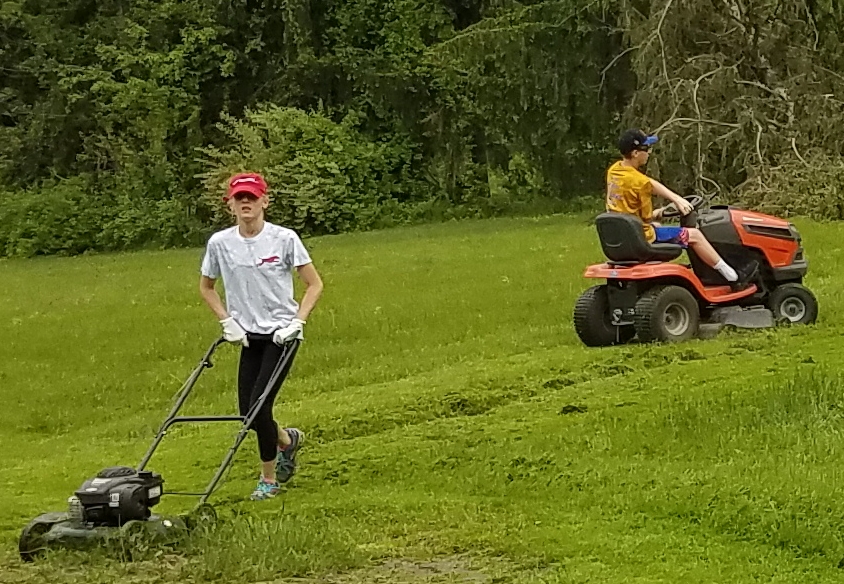
One of the things moms (and dads) find most frustrating is the seemingly (or actual) need to constantly remind, nag, or completely lose your sh*t on your kids in order to get them to contribute around the house.
But what many parents fail to realize is that they are a pretty big factor in this non-contributing kid equation.
Making some changes in how you approach involving your kids at home can make all the difference.
If you fantasize about your kids actually taking care of their responsibilities without having to be reminded and without putting up a fight, the following strategies will help you get to that point.
1. Start young.
The sooner you start having your kids contribute to the daily operation of the home, the better.
It’s not so much that the kids need to know how to do particular tasks at a young age. It’s that they need to know they are expected to do something.
An eighteen-month-old can put a couple toys in a toy box. A two-year-old can “sweep” or “fold clothes” or “wash dishes.”
Young kids can help you sort laundry or match socks.
They love to do just about anything in the kitchen.
Having kids contribute sets the expectation as far back as they can remember that they are responsible to help out around the house.
2. Start small.
Young kids don’t need to be doing anything for lengthy periods of time. They just need to be pitching in in some way. It’s just like the ten-minute homework expectation per grade level — the younger they are, the smaller the contribution.
A high schooler and a kindergartener don’t have the same amount of homework, and they shouldn’t have the same level of contribution expectations at home.
3. Training is crucial.
When you start a new job, you receive training on how to do certain aspects (or all) of the job. Even professionals continue to attend professional development workshops/classes/seminars to keep current.

It shouldn’t be any different with your kids.
How can you expect a child to know how to do something without being taught, shown, and then having lots of opportunities to practice? A doctor is an intern before she has her own practice. A teacher does student teaching before becoming certified. There is a reason people shadow experienced employees.
It’s no different for your kids! They need to be taught what to do and how to do it, and the expectations for the finished job must stay in line with their age and experience.
4. Be consistent.
If you had a boss who expected you to complete a task one week and then let you blow it off the next week, you’d be confused about what your expectations were, too!
Staying consistent with expectations doesn’t make things harder for your kids. It makes them more predictable and it makes things (and life) easier for them.
5. Let your kids be part of the whole process.
Instead of making a list and assigning jobs to the kids, have a family meeting.
Sit down as a family and talk about what jobs need to be done on a daily, weekly and monthly basis. Have the kids come up with the list. This not only makes them think about what has to be done to keep the house running, but it also gives them an awareness of how much work goes into maintaining a home.
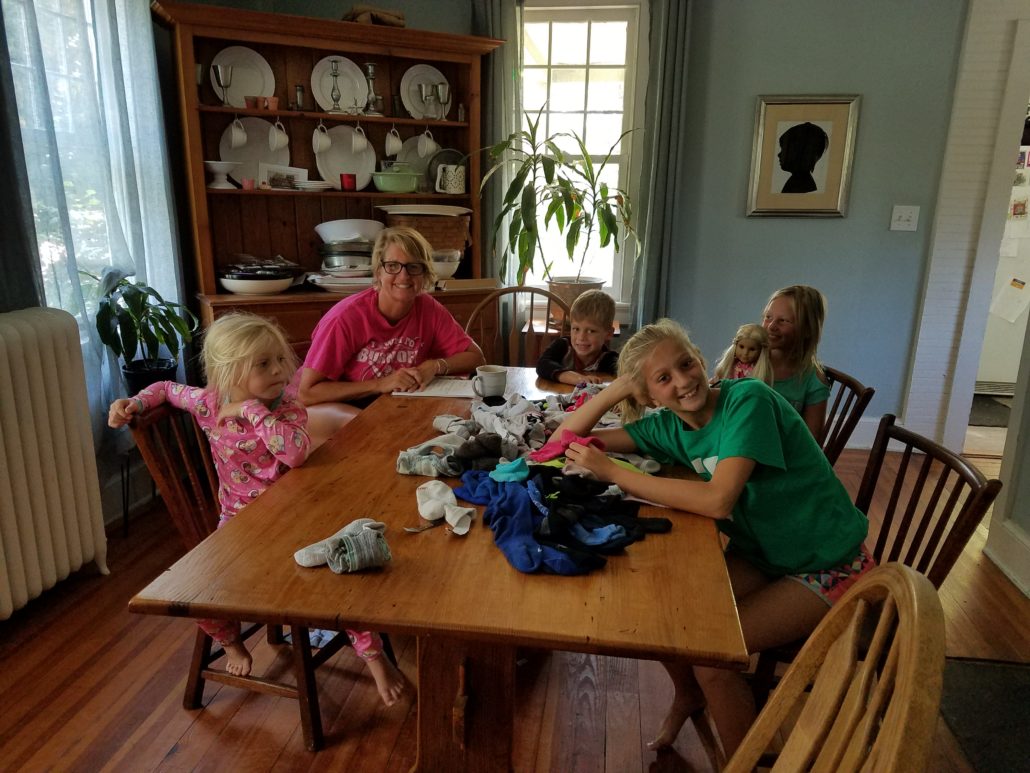
Ask the kids what jobs they need to do every day, what jobs are done weekly, etc.
You’d be surprised at the answers they come up with when they are involved in the conversation.
And if your kids above the age of five years old are completely clueless about what needs to be done to maintain the status quo at home, then they definitely need to be given some responsibility.
6. Don’t reward duties that are essential to maintaining a household.
When you pay your kids to do everyday tasks that are just part of making sure your house doesn’t turn into a total shit hole, your children are taught that they deserve to get paid for doing jobs that are really every human being’s responsibility.
When you are off on your own, unless you are independently wealthy at eighteen years old, nobody pays you to wash your own dishes or vacuum or do laundry.
7. When your kids ask to help, let them.
I know this can be brutal sometimes. Or all the times.
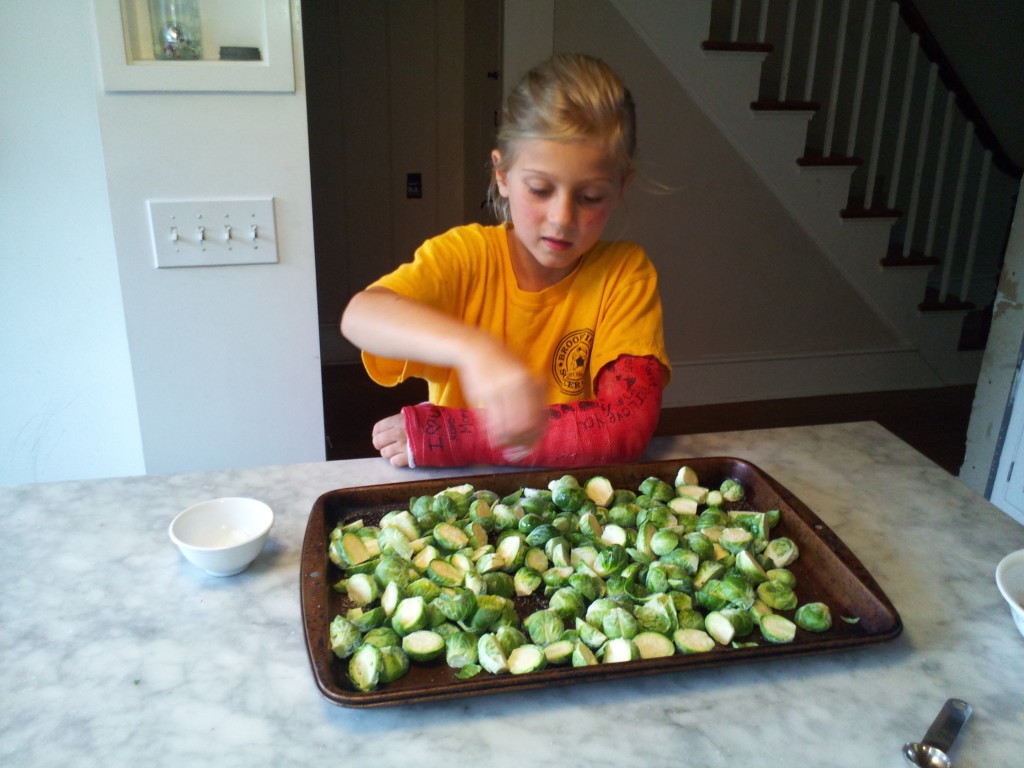
It slows you down and it often makes more work for you in the short term because your kids aren’t doing it the “right way,” but how can you expect kids to want to help out if every time they offer up the very thing you are wanting them to do on their own you reject their offer and tell them NO?
8. There are no boy jobs and girl jobs.
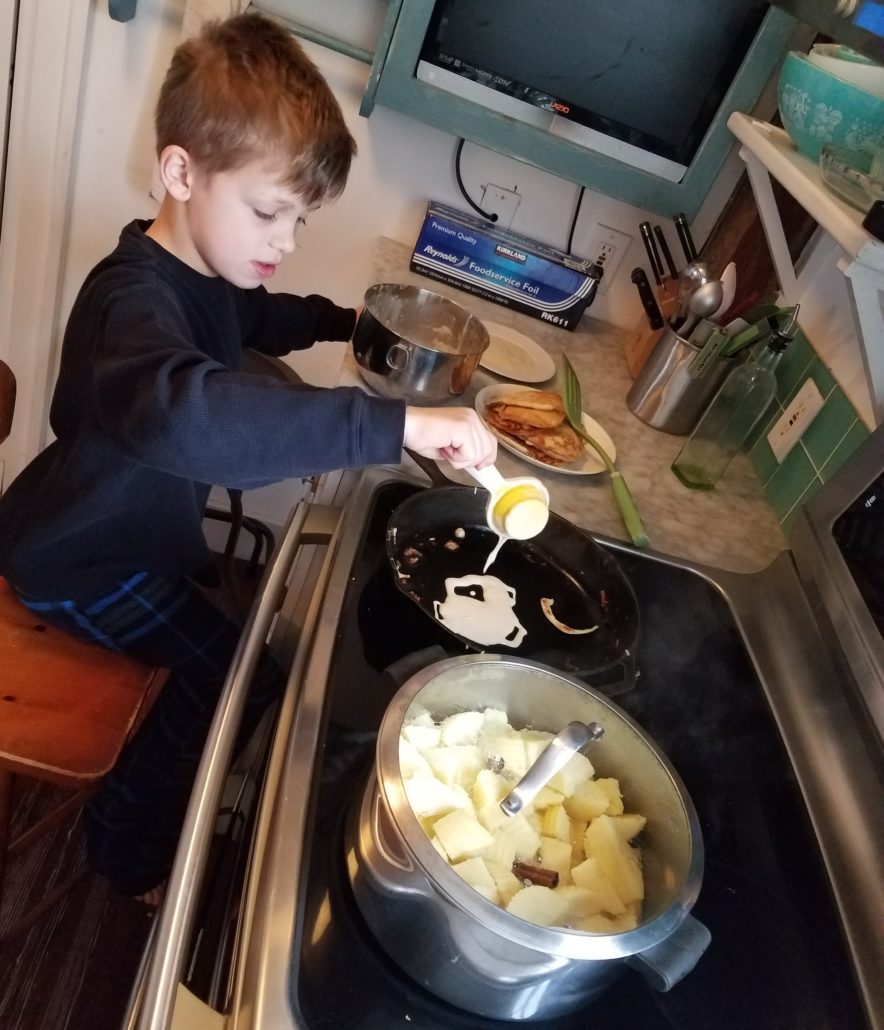
Whether it’s cooking or yard work or taking the garbage out or cleaning, everyone learns to do everything.
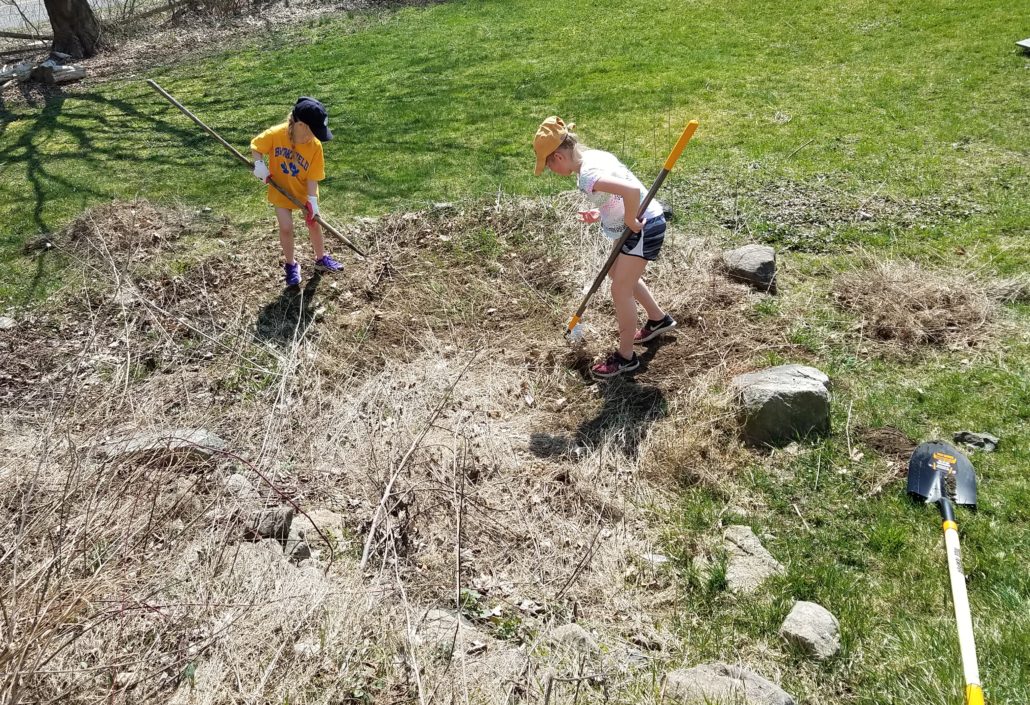
That way you aren’t raising girls who think they need a man to do certain things for them and you aren’t raising boys who are even aware of the term women’s work.
Part of the goal with having your kids contribute at an early age isn’t just to learn responsibility. It’s to learn how to take care of themselves and be completely independent and self sufficient and have the skills to navigate all avenues of life.
Because let’s face it, one day there’s a good chance they are gonna be taking care of YOU.
9. Delegate.
Let older kids teach the younger kids. Kids love to be teachers! If you have a kid who knows how to do a job well, let them teach that skill to a sibling.
Then you are killing two birds with one stone and providing opportunities for cooperation, too.

10. Don’t underestimate your kids!
Your kids are capable of doing a lot more than many of us think they are.
I will reference my favorite show again… Little House on the Prairie.
Ten-year-old Laura Ingalls would have kicked the ass of most teenagers nowadays.
Actually she’d kick a lot of adults’ asses nowadays, too.
I think about the things kids were doing a hundred and fifty years ago, and the things we expect or even allow our kids to do now.
If your kid can operate a computer mouse with the accuracy and dexterity of a neurosurgeon at two years old, then he can sure as shit learn how to operate a dishwasher and a washing machine.
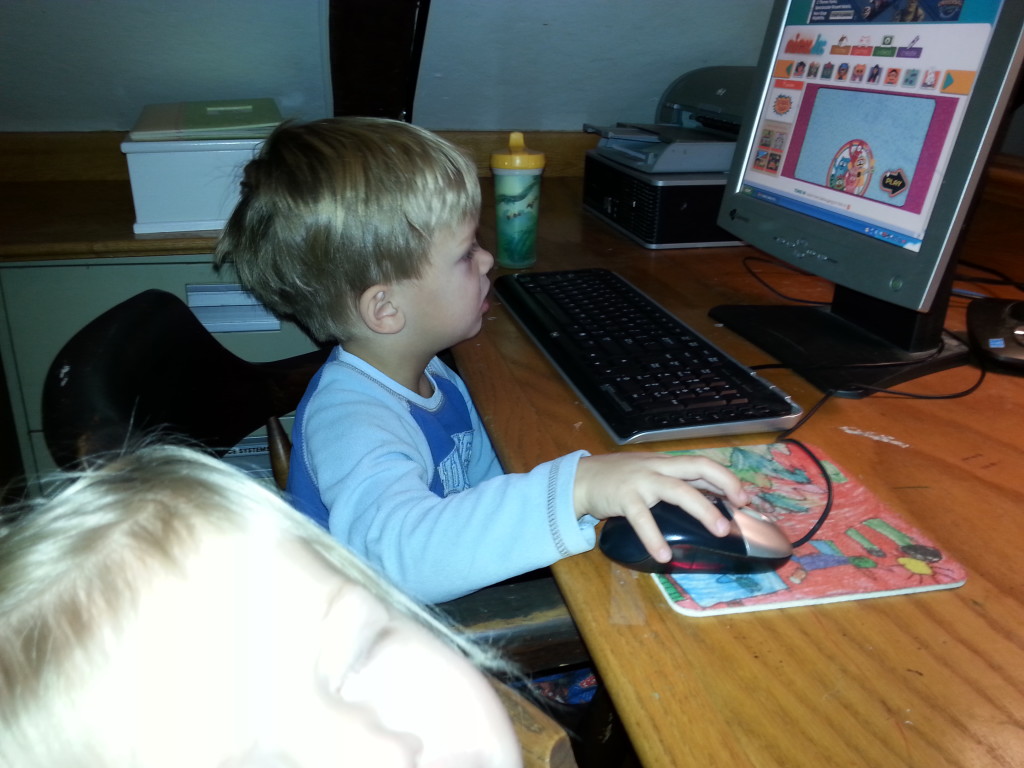
Your kids can operate lawnmowers and use knives and be near a hot stove.
They just need training and supervision when they first begin.
But once you have trained them and provided multiple opportunities for supervised practice, they will eventually be skilled enough to do these things on their own.

And then you will have less weight on your shoulders, less jobs on your to-do list, and more time at your disposal so you can spend more quality time with your kids or do something to actually take care of yourself.
11. Manage your expectations, and show appreciation.
Lastly, and perhaps most importantly, your kids are still kids.
If you are super critical of the way your kids perform whatever task they do, you are pretty much guaranteeing they will not want to help out willingly ever again.
(And I’m not talking about a pissed off kid who is rebelling and doing the world’s crappiest job of cleaning up and just shoving the entire contents of his or her room under the bed.)
A five-year-old is not going to fold laundry the way you would. They will not load the dishwasher as efficiently as you might. A twelve-year-old is probably going to miss a couple spots while cutting the grass. Even a seventeen-year-old is not going to clean the bathroom the way a forty-five-year-old woman is.

Show appreciation for the help.
Thanks for helping with dinner. I really appreciate it, and you made my day a little easier. You were a really big help!
Everyone likes to know their hard work is appreciated.
If your kids are not contributing much (or at all) around the house or getting them to pitch in is a major battle every day, the strategies on this list will help, no matter what ages your kids are.
They may complain that you are ruining their lives and being the meanest mom ever by forcing them to work.
But in reality — in the long run — you are making their lives easier.
And what you are really doing is, um… your job.
Aaaaand (this may not help much right now in the moment, but…) one day, their future husbands, future wives, and future bosses (not to mention your future self) are gonna seriously thank you for doing this.


Do you live at my house?
Susie, you always seem to know just what to write.
Thank you!
Gonna try some of these this week.
Having kids help out around the house also gives them skills they need for living on their own (on top of taking the load off of the parent). My 12 year old has certain chores (laundry, he knows how run both machines, vacuuming, dusting, folding clothes, dishes etc…..this summer it will be bathroom cleaning training). There are kids that are leaving their parent’s house that have no idea how to run a washing machine. Parents are not doing their kids any favors by not having them help out or learn to do a household chore….they are crippling them.
100% agree!! It’s a minute by minute challenge to do these things, but these things are absolutely required from you if you desire a peacefully run home in the future. “What you tolerate, you encourage.” Thanks for the reminder.